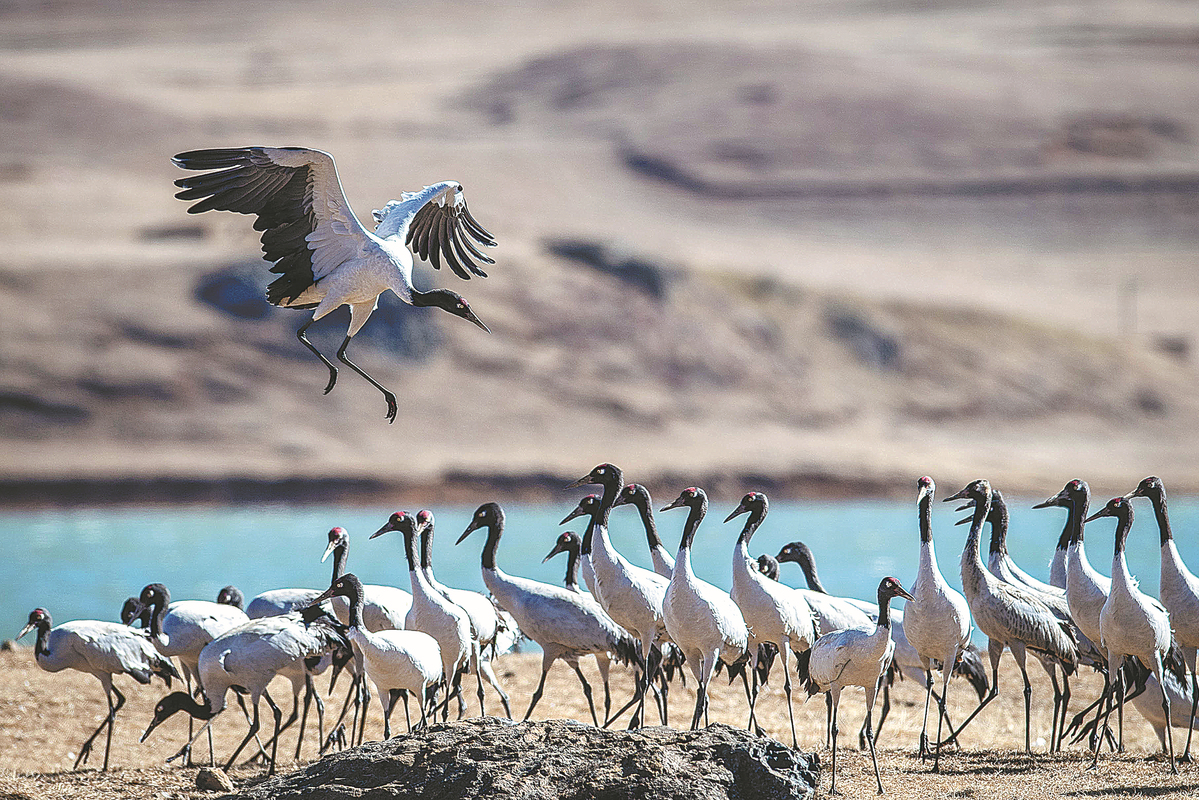Working together to protect biodiversity


Humanity has only one home – the Earth. But it isn't exclusively ours. We share our beautiful planet – this stunning blue marble – with millions of other species and our existence is intertwined with theirs. For the sake of all living things, we must ensure a healthy and thriving planet.
This simple yet important truth is reflected in this year's International Biological Diversity Day theme: "Building a shared future for all life" (共建地球生命共同體). This theme could not be more compelling because currently we are failing our Mother Earth.
The planet is at a breaking point. With 75% of the earth's land and 2/3 of its oceans now impacted by humans, environmental disruption is escalating at an unprecedented rate. An estimated 200 species are going extinct every day, 1/5 of all nations could see ecosystems collapse due to destruction of wildlife habitats and carbon emissions are higher than ever before.
If the world is to sustain future generations, we must fundamentally fix our broken relationship with nature.
To this end, at part one of the COP15 summit of the Convention on Biological Diversity, we saw some important steps being made. The international community came together to sign the Kunming Declaration, agreeing to integrated actions for the protection of biodiversity around the world. China also announced the establishment of the 1.5 billion RMB (2.24 million USD) Kunming Biodiversity Fund to support conservation efforts in developing countries which UNDP, together with UNEP, looks forward to offering our support in operationalizing.
However, to truly safeguard nature for the future, we need to see more wide-ranging and rapid change. In particular, there are several areas where it will be critical to advance progress:
First, we must continue to strengthen the synergies between how we address biodiversity protection and climate change. The ecosystems that climate change is destroying not only provide habitats for wildlife, but also absorb greenhouse gases as carbon sinks. In fact, the Chinese Academy of Sciences (CAS) found that from 2001-2010, annual carbon sequestration of terrestrial ecosystems was equal to offsetting 14.1% of China's fossil fuel emissions. Thus, it will be critical to tackle these interrelated challenges together.
Second, biodiversity finance must be increased and expanded. We need US$824 billion every year to sustain biodiversity. However, currently the world spends only US$142 billion on biodiversity conservation, just over 0.1% of total global GDP. This is grossly inadequate. We have an almost US$700 billion gap for the foundation of everything we value.
It is made worse by the fact that governments spend nearly US$500 billion a year on investments that harmbiodiversity, particularly agricultural subsidies.
UNDP's global Biodiversity Finance Initiative (BIOFIN) works to multiply resources for conservation efforts and improve their effectiveness. Its launch in China will help to galvanize public and private partners to increase financing for nature-positive investments.
Third, private sector engagement in environmental protection is crucial. Without private investment, the funding gap to sustain biodiversity will be much more difficult to close. But contributions from the business sector must go beyondjust CSR and philanthropy. Sustainability must be put at the core of business strategies, so that every stage of value-chains is one our world can sustain. And for companies, this isn't just about having a moral responsibility. The World Economic Forum (WEF) estimates that a new nature-positive economy could generate up to US$10.1 trillionin annual business value and create 395 million jobs by 2030.
Finally, with part two of the COP15 biodiversity summit to be held later this year, it is an opportunity to recognize the importance of international cooperation. The need to conserve biodiversity and ensure a healthy environment is a global challenge that does not stop at borders. Countries must work together if humanity is to succeed in protecting the planet. Reaching consensus on the adoption of an ambitious, specific and measurable post-2020 Global Biodiversity Framework underpinned by the necessary financing will represent international recognition of this fact and is thus vitally important and urgent.
Working together, countries can create a world where humanity and nature do not just co-exist, but also flourish.
The author is UNDP resident representative in China.
The opinions expressed here are those of the writer and do not necessarily represent the views of China Daily and China Daily website.
If you have a specific expertise, or would like to share your thought about our stories, then send us your writings at [email protected], and [email protected].


































